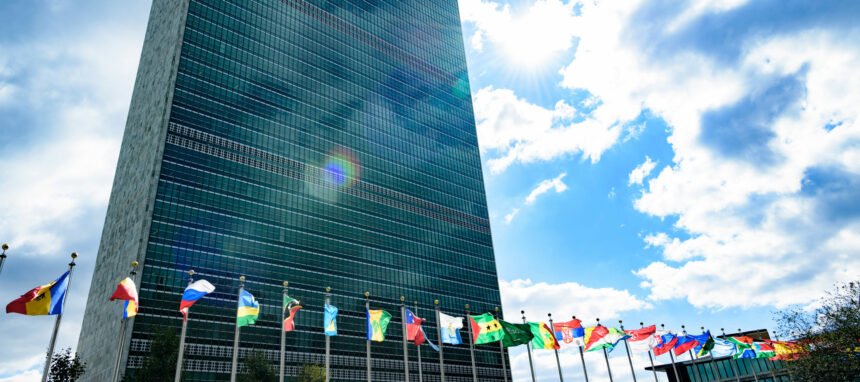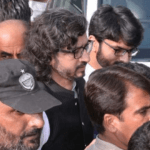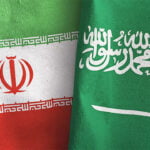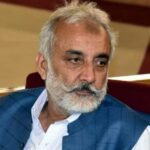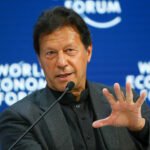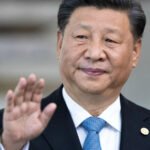China and Russia have come under fire from the United States and its allies for allegedly blocking UN Security Council action against North Korea in response to its increasing number of ballistic missile tests.
On Friday, the Security Council’s 15 members were unable to come to an agreement on a statement denouncing North Korea’s recent bombardment of ballistic missiles. Instead, a number of nations, including the US, the UK, and France, individually denounced Pyongyang’s continuous missile testing.
An alleged intercontinental ballistic missile (ICBM) was among the record-breaking number of missile launches undertaken by North Korea this week, increasing the country’s total for the year to more than 60.
Despite the fact that 13 out of the 15 Security Council members have denounced North Korea’s increasing number of ballistic missile launches since the start of the year, according to US Ambassador to the UN Linda Thomas-Greenfield, Pyongyang has received protection from two nations, namely China and Russia, although she did not specifically name them.
Using North Korea’s formal name, the Democratic People’s Republic of Korea (DPRK), the US envoy claimed that both nations had “bent over backward” to defend their continuous breaches of UN sanctions.
“And, in turn, they have enabled the DPRK and made a mockery of this council,” she said.
China, North Korea’s most important ally, and Russia, whose ties with the West have significantly deteriorated as a result of their incursion of Ukraine, however, informed the UN gathering that the US is to blame for the current conflict with North Korea.
The UN representative for China, Zhang Jun, responded that North Korea’s missile launches were directly related to the US and South Korea’s resumption of extensive military drills after a five-year hiatus, including air force drills involving hundreds of aircraft from both nations.
The Chinese ambassador also cited the US Defense Department’s 2022 Nuclear Posture Review, which he claimed predicted North Korea will utilise nuclear weapons and claimed that one of the US’ principal objectives is to topple the Pyongyang regime.
The drastically deteriorating scenario on the Korean peninsula, according to Russia’s deputy UN ambassador Anna Evstigneeva, is due to “Washington’s desire to force Pyongyang to unilaterally disarm by using sanctions and exerting pressure and force.”
She said that the 240 military aircraft participating in the US-South Korean military air drills, which started on October 31, are unmatched in magnitude and are “essentially a rehearsal for conducting out massive strikes on the territory of the DPRK.”
Evstigneeva called for the lifting of sanctions against North Korea in June, arguing that the nation needs more humanitarian supplies and less Western pressure.
To defend itself against what it perceives to be a long-standing danger from the US and its partner South Korea, North Korea has maintained its weapons program and the firing of ballistic missiles.
The US ambassador said in response to the representatives from China and Russia: “This is nothing but a regurgitation of DPRK propaganda”.
The US and South Korea’s military drills, she continued, “pose no threat to anyone, let alone the DPRK.”
“In contrast, just last month, the DPRK said its flurry of recent launches were the simulated use of tactical battlefield nuclear weapons to `hit and wipe out’ potential US and Republic of Korea targets,” she added.
Nicolas de Riviere, France’s ambassador to the UN, urged attendees of the meeting on Friday to keep up the pressure because of indications North Korea is getting ready for its seventh nuclear test in history.
“The current escalation is unprecedented and these new provocations are unacceptable,” he claimed.
Following North Korea’s first nuclear test explosion in 2006, the UN Security Council adopted restrictions and strengthened them over time in an effort to curtail Pyongyang’s nuclear and ballistic missile programmes and cut off funds.
However, the first significant disagreement on the council about the sanctions against North Korea occurred in May when China and Russia rejected a resolution that would have reinforced penalties in response to the missile tests.
Khaled Khiari, the assistant secretary-general of the UN, issued a warning that for the UN Security Council to make headway on North Korea, consensus was necessary.
“The unity of the Security Council in this matter is essential to ease tensions, overcome the diplomatic impasse and the negative action-reaction cycle,” Khiari continued.




